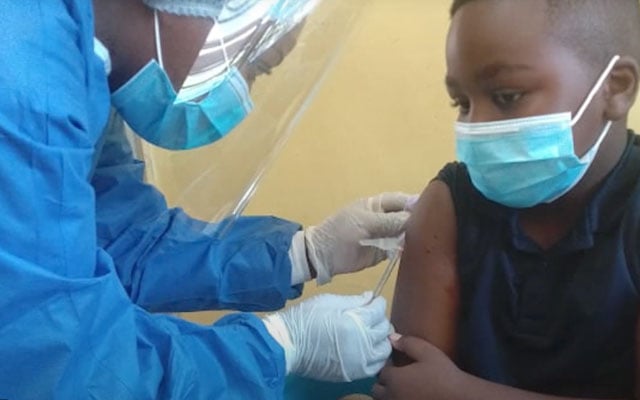Before WFH Humanitarian Aid Program donations began in Zambia, children in the African country would regularly suffer from acute bleeds which greatly impacted their quality of life. Bleeds led to missed school, and in many cases, a parent had to quit their job to take care of the child full time. Now, the situation has completely changed for many children with a bleeding disorder, and they now have a chance at a more normal life. This dramatic change has been made possible by donated factor, and also by donated non-factor replacement therapy—both of which are being provided in Zambia by the WFH Humanitarian Aid Program.
“We’ve seen a tremendous progress in the management of patients with hemophilia,” explains Uzima Chirwa, MD, who worked as a physician at the University Teaching Hospital in Lusaka, Zambia. He says that children who are put on a prophylaxis program rarely have acute bleeds. Constance Phiri—the mother of Gift, a boy with hemophilia—also has praise for the Program. She says that prophylaxis has allowed her son to go to school and play with his friends like other boys. In her words: “We want to give a big thank you to the [WFH Humanitarian Aid Program for the] treatment products that donors have given to us.”
To read about how donated factor has made a difference in Zambia, click here.
In 2020, the WFH Humanitarian Aid Program worked with the Haemophilia Foundation of Zambia—the local national member organization (NMO)—to deliver over 1.25 million IUs of factor to local hospitals. In 2020 and in the first six months of 2021, 37,800 mg of non-factor replacement therapy were donated by the Program.
To find out more about the WFH Humanitarian Aid Program, click here.
About the WFH Humanitarian Aid Program













